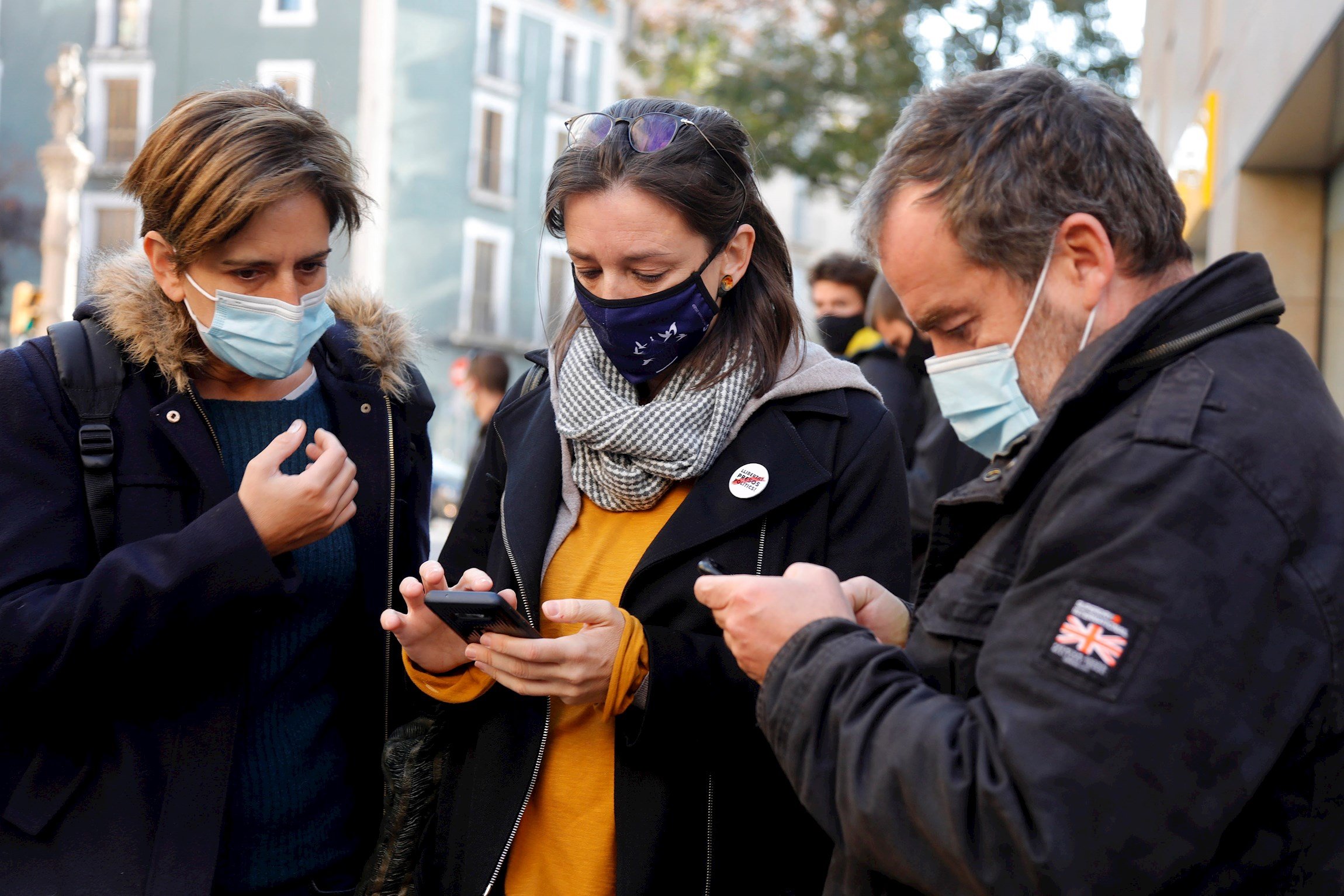The Volhov case - the label given to the operation that arrested 21 pro-independence Catalans on Wednesday - is a vast mine of information. Not so much for the many alleged relationships or contacts described within it, but for how the judge, Joaquín Aguirre relates each of these meetings and relationships to the Catalan independence process and the alleged processes of corruption that existed in its service.
In the interlocutory on media director Oriol Soler, the judge makes great efforts to relate the entire Russian operation - that is, the supposed offer by Moscow of 10,000 soldiers to guarantee Catalonia independence - to relations between Soler and Wikileaks founder Julian Assange. A simple tweet from the latter even caused the judge to establish a direct line between Soler and - yet another of the headline-grabbing issues of the case - Tsunami Democràtic, the anonymous pro-independence protest platform that was active late late year in Catalonia.
According to the court report prepared by the judge from the Civil Guard's investigation, it is the Soler-Assange tandem that makes the whole plot fall into place: "Regardless of whether the diplomatic complaints about Russia's participation in campaigns in favour of the Catalan pro-independence cause were sufficiently founded, the reality is that relations between Oriol Soler and Assange, as well as the participation of certain Russian media, make sense in terms of the Catalan government's own attempts to internationalize the conflict, obtaining the support of third countries willing to recognize Catalonia as a country in case it got to the point of declaring independence".
Along with David Madí and Xavier Vendrell, also arrested in Wednesday's Civil Guard operation, Soler is considered one of the architects of Tsunami Democràtic.
Tsunami and Barça
The only obvious evidence that the judge has to believe that Oriol Soler might be one of the ideologues of Tsunami Democràtic is a conversation using some coded references which he has with Xavier Vendrell where they talk about "shooting" and the Barça football club.
"Your people who have to go to shoot, they go to a certain point, they identify themselves with a certain name and they have to be trained and so The Poet Foix said: Okay, eight people will go," is a phrase quoted in the interlocutory, which states there are several names in code. One of them is The Poet Foix, whose identity Soler does not know. But he asks if it is Jordi Basté: "Oriol Soler asks him if The Poet Foix is the father "father" of Basté, and Vendrell answers that father Basté is the head of all..."
Jordi Basté is the name of a broadcaster. The name of another Catalan media figure, Jaume Roures, also appears in the interlocutory. He is cited as a producer who can make projects happen. But he is not connected to anything in the report.
Soler, finance and ...speculation
For the Civil Guard and the judge, Soler also represents an escape route from the need for public money from the Catalan government to finance the process. According to the investigation, the funds Soler received as grants for his publishing companies were invested in the 1st October referendum and then in campaigns or mobilizations such as Tsunami.
"A consultation of the databases of public contracts and subsidies of the Catalan government yields the result that in the period between 2016 and 2020 companies linked to Oriol Soler received around 3 million euros, derived from public contracts and subsidies according to a consultation carried out in the public register of contracts, and in the RAISC (register of assistance and subsidies in Catalonia). Among the beneficiary companies are Editorial Alpha SL, Ara Llibres, SCCL, Som SCCL and Batabat, SCCL", says the interlocutory.
The investigation notes that the contracts were small in total sum, thus not being legally required to open tender processes to other companies in the sector: "Through open sources it is known that Oriol Soler receives, especially from the newspaper Ara, important public funds [sic: Oriol Soler ended his relationship with the newspaper Ara in 2012, eight years ago]. Most contracts do not exceed the amount stipulated to trigger a public tender, an issue that is corroborated by the analysis of contracts signed by entities linked to both Oriol Soler and his partner Marina Llansana. Precisely, Marina Llansana appears in the documentation of Jaume Cabaní in relation to Òmnium Cultural Rights Europe (OCRE)".
The awarding of contracts and subsidies by the Catalan government, it should be said, is public and is required to follow a specific legal framework.
The investigation does not show, but just speculates, that the money Soler received was not used for the purposes for which he requested it, but to fund the independence process.

